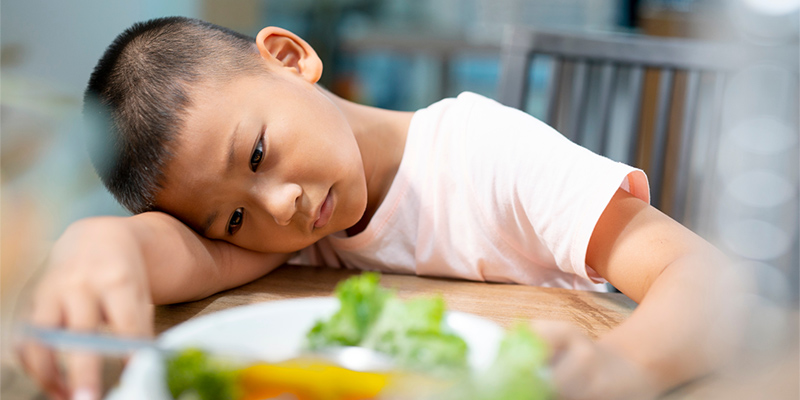Study reveals the best ways to encourage kids to eat their greens
By Annabel Mansfield
 HEALTH
HEALTHNew research has revealed what’s likely to increase or decrease picky eating in young children.
The research by UniSA, the University of the Sunshine Coast (USC) and the University of Queensland is providing a better understanding of what influences fussy eaters aged under 10.
Researchers reviewed 80 health industry studies, finding a range of factors contributed to a child’s likelihood of being a fussy eater.
The study found that pressuring a child to eat, offering rewards for eating and very strict parenting all negatively influenced fussy eaters. Conversely, a more relaxed parenting style, eating together as a family, and involving a child in the preparation of food all reduced the likelihood of fussy eating.
UniSA researcher Dr Ann Kennedy-Behr says stress can contribute to fussy eating.
“When you have a child who is a picky eater, it’s very stressful for a parent or carer – they’re forever questioning whether their child is getting enough nutrients, enough food, and often enough weight gain,” Dr Kennedy-Behr says.
“Yet it’s important to understand that being overtly anxious or worried can actually contribute to increased picky eating.
“Avoiding getting cross and limiting any negativity around mealtime will benefit everyone.
“Positive parenting, no matter how difficult it can be in certain situations, is the best step forward for fussy eaters.”
Lead researcher and USC PhD student Laine Chilman says the research hopes to help parents and carers better understand fussy eating in children.
“For parents with a fussy eater, mealtimes can be especially stressful – juggling the family meal and a picky eater is no small feat,” Chilman says.
“Some families have kids who turn their noses up at any vegetable. Others are dealing with kids who dislike certain textures or colours of food.
“Some of these preferences relate to a child’s characteristics or personality, which are difficult to change, if at all. But others are external factors that could help reduce fussy eating in kids.
“Eating together as a family, with siblings, and having a single meal at a regular time all helped reduce food fussiness. As did getting the fussy child involved in the meal, either by helping to choose the menu, or helping to prepare the meal.
“Yet if fussy eaters were allowed to eat in front of the TV, or if they were rewarded for eating certain foods, these behaviours negatively influenced picky children.”
Read more in the paper Picky Eating in Children, published in the International Journal of Environmental Research and Public Health.
According to the Australian Nutrition and Physical Activity Survey, most children do not meet recommended diet and nutrition guidelines.
Tips to help a fussy eater
- Set a good example: a family that eats together has better eating habits
- Schedule regular mealtimes: regular mealtimes reduce levels of stress
- Get kids involved with food preparation: familiarity and a sense of control can help
- Try to have one mealtime: a separate kids’ sitting encourages fussy eating
- Turn the TV off: focus on food, not on screens
- Try to keep mealtimes calm and stress free: will be a better experience for all
- Remove rewards, bribes or punishments for fussy eaters
Watch the 7News Adelaide story about how to help kids who are fussy eaters.
Other Stories
- UniSA and LinkedIn announce new international education partnership
- World-first drug trial to treat deadly pancreatic cancer
- Before and after Provost
- Study reveals the best ways to encourage kids to eat their greens
- From the Vice Chancellor
- Achievements and Announcements
- Programs in areas of economic growth prove popular
- Public washrooms are flush with germs but there are simple ways to reduce your risk of infections
- UniSA honours Uncle Lewis Yarlupurka O’Brien
- Could artificial intelligence save Australia from another black summer?
- UniSA College celebrates 10 years of changing lives
- UniSA honours the late Bob Hawke’s long-term assistant Jill Saunders
- From UniSA graduate to foreign correspondent – journey to the White House
- The latest books from UniSA researchers
- In Pictures: Celebrating staff service, Governor visits Whyalla and more




